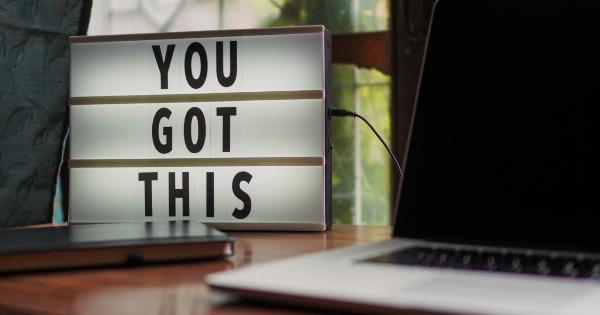Are you feeling down, lost, or simply not happy? Often times, we focus too much on what we don’t have or what we need to change in order to be happy.
But, what if I told you that there is only one question you need to ask yourself in order to be happier?.
The One Question
The one question you need to ask yourself is: What are you grateful for?.
Gratitude is a powerful emotion that has the ability to shift our focus from what we don’t have to what we do have. When we focus on what we are grateful for, we become more positive, more optimistic, and more content with our lives.
The Science of Gratitude
There is a growing body of research that shows the benefits of practicing gratitude. Studies have found that regularly expressing gratitude can improve our physical health, our relationships, and our overall well-being.
For example, a study conducted by Robert A.
Emmons and Anjali Mishra found that participants who wrote down things they were grateful for every day for three weeks, reported feeling more optimistic, more satisfied with their lives, and even exercised more. In another study, researchers found that people who regularly practiced gratitude had lower levels of stress and depression and physically slept better at night.
How to Practice Gratitude
Practicing gratitude is not difficult, but it does take consistent effort. Here are some ways to get started:.
1. Keep a gratitude journal
Every day, write down three things that you are grateful for. It can be as simple as having a warm bed to sleep in or as significant as a promotion at work. The goal is to find something, no matter how small, to be grateful for every day.
2. Express gratitude to others
Thank someone for their help, email a colleague to express appreciation for their hard work, or simply tell a loved one how much you appreciate them. Make it a habit to regularly express gratitude to others.
3. Practice mindfulness
Take a few moments each day to practice mindfulness. Sit quietly and focus on your breath, allowing any thoughts or emotions to come and go without judgment.
This can help you tune into the present moment and cultivate a sense of gratitude for what you have right now.
4. Reframe negative experiences
When something negative happens, try to find something positive about the experience. For example, if you lost your job, you might be grateful for the opportunity to explore other career options or to spend more time with your family.
Conclusion
Gratitude is a powerful emotion that can help us feel happier, more content, and more fulfilled. By asking ourselves the simple question of what we are grateful for, we can shift our focus from what we don’t have to what we do have.
So, what are you grateful for today?.





























